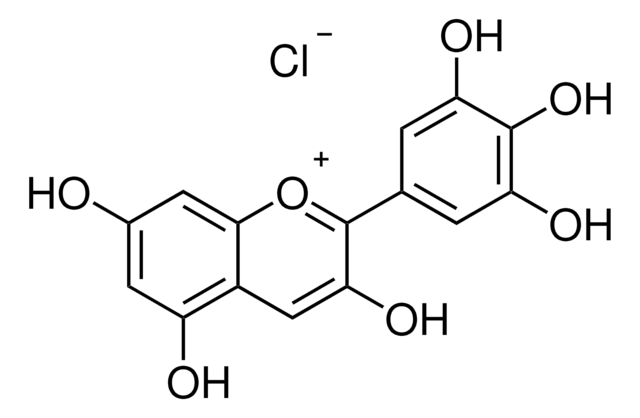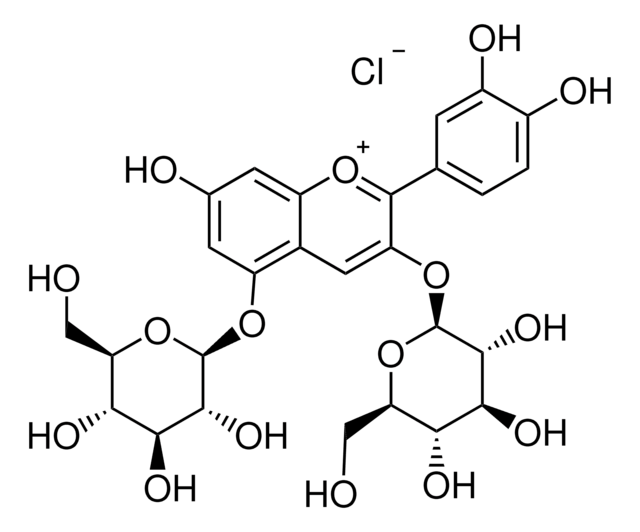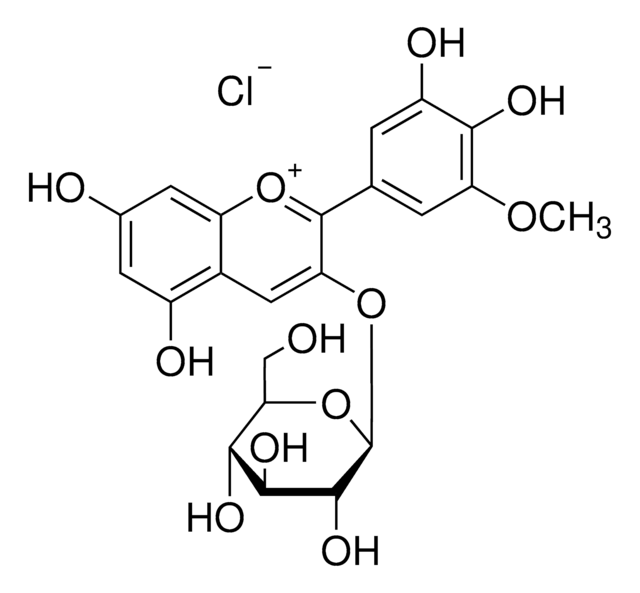79457
Cyanidin chloride
≥95% (HPLC)
Synonym(s):
3,3′,4,5,7-Pentahydroxyflavylium chloride, Cyanidol chloride
About This Item
Recommended Products
Quality Level
Assay
≥95% (HPLC)
form
powder
storage temp.
−20°C
SMILES string
[Cl-].Oc1cc(O)c2cc(O)c([o+]c2c1)-c3ccc(O)c(O)c3
InChI
1S/C15H10O6.ClH/c16-8-4-11(18)9-6-13(20)15(21-14(9)5-8)7-1-2-10(17)12(19)3-7;/h1-6H,(H4-,16,17,18,19,20);1H
InChI key
COAWNPJQKJEHPG-UHFFFAOYSA-N
Looking for similar products? Visit Product Comparison Guide
Biochem/physiol Actions
Packaging
related product
Storage Class Code
11 - Combustible Solids
WGK
WGK 3
Flash Point(F)
Not applicable
Flash Point(C)
Not applicable
Personal Protective Equipment
Certificates of Analysis (COA)
Search for Certificates of Analysis (COA) by entering the products Lot/Batch Number. Lot and Batch Numbers can be found on a product’s label following the words ‘Lot’ or ‘Batch’.
Already Own This Product?
Find documentation for the products that you have recently purchased in the Document Library.
Customers Also Viewed
Articles
Antioxidants protect biological systems from oxidative damage produced by oxygen-containing free radicals and from redoxactive transition metal ions such as iron, copper, and cadmium.
Our team of scientists has experience in all areas of research including Life Science, Material Science, Chemical Synthesis, Chromatography, Analytical and many others.
Contact Technical Service





